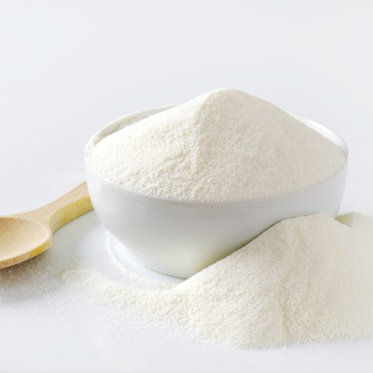|
Inulin is high in fibre and low in calories. It also has other health benefits.
It keeps you full (of fibre)
Fibre is any type of carbohydrate the body can’t digest. It moves through the intestines intact and continues into the colon to serve as a food for the bacteria there. Fibre has low caloric value, but it’s essential to good health.
The fiber in inulin is soluble, which means it dissolves in water. It dissolves in the stomach and then forms a gelatinous substance that:
slows digestion
increases fullness
reduces cholesterol absorption as it passes through the digestive tract
It promotes digestive health
Your gut contains between 15,000 and 36,000 species of bacteria. Only a small portion of the bacteria in the body has the potential to be harmful. Good bacteria provide many health benefits. Inulin stimulates some of these bacteria to grow.
Inulin aids digestion by increasing the number of good bacteria in the gut, particularly Bifidobacteria and Lactobacilli.
These bacteria help:
fend off unwanted pathogens (bad bacteria)
prevent infection
stimulate your immune system
Inulin also adds bulk to your stool and increases the frequency of your bowel movements. You may have more bowel movements, but inulin slows overall digestion. This enables your body to better absorb nutrients from the food you eat.
Research trusted Source suggests inulin can also enable the body to better absorb calcium. Calcium creates a stronger skeletal system.
It controls blood sugar
Inulin slows digestion, including the digestion of carbohydrates. This allows sugar to be released slowly without spiking, which promotes healthy blood sugar levels.
A 2015 study trusted Source revealed that inulin might benefit people with pre diabetes. It can act as a potential blood sugar stabilizer when present in your diet over a long period of time.
Some research suggests these properties make inulin a good weight management aid.
It could potentially lower your colon cancer risk
Studies show that a high intake of dietary fibre, like inulin, is associated with a reduced risk of cancer. Researchers are actively exploring the use of inulin to prevent cancer.
As an immune system booster, it may also be a good preventive supplement against cancers of the digestive system. More studies are needed before any strong claims can be made about the effects of inulin on colon cancer.
Inulin powder has taken the country by storm after appearing in the BBC programme, “How To Stay Young”, in 2016 where it was highlighted for its numerous health benefits, high starch content and the supposive ability to reduce internal fats particularly around the heart.
|

